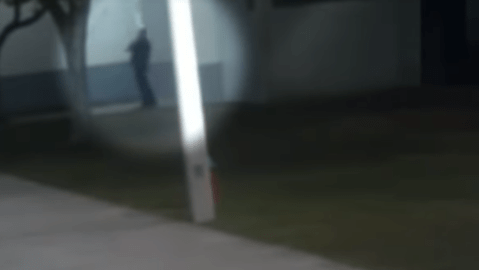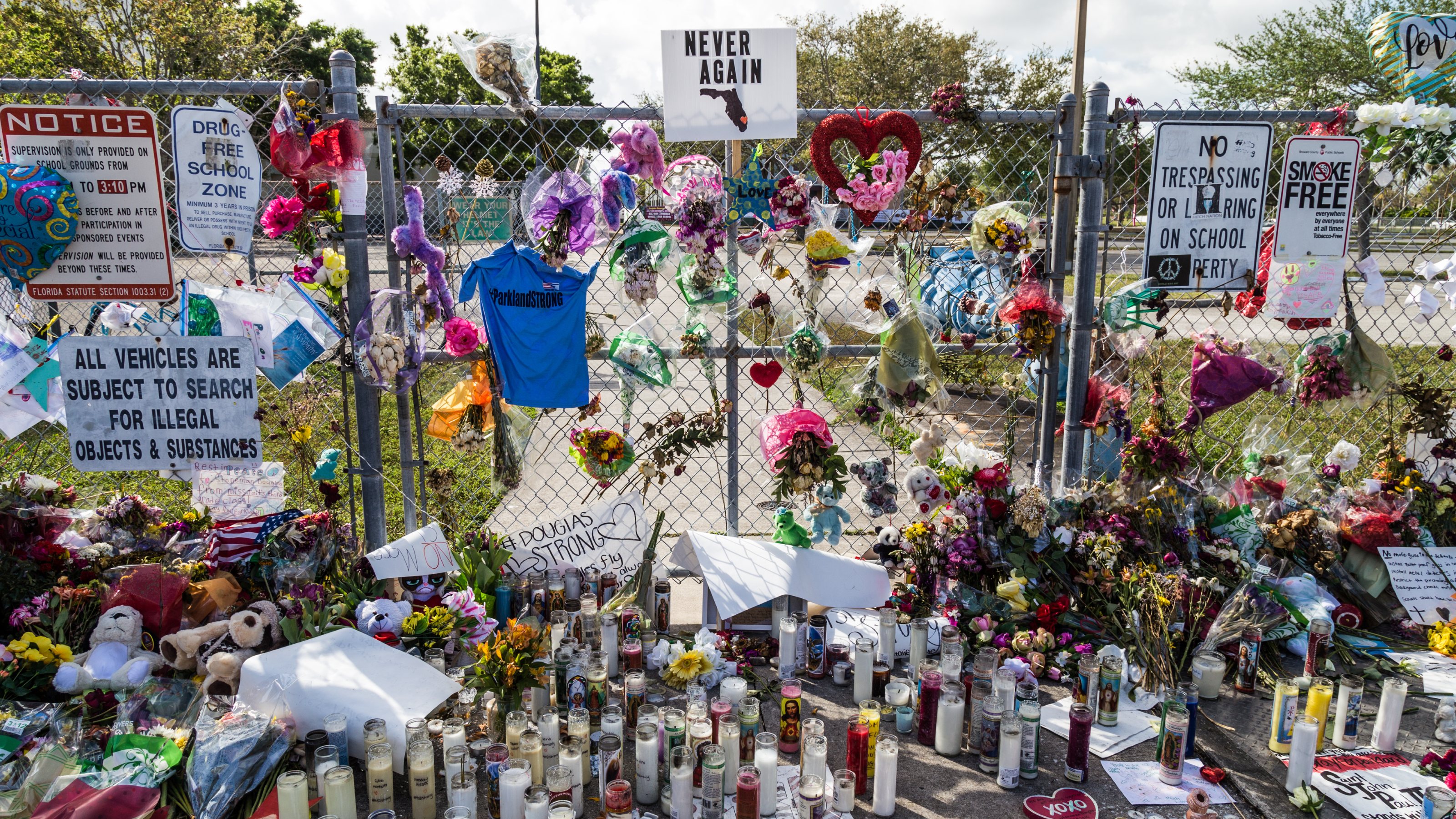Two officers fired for not confronting Parkland school shooter

Image source: Broward County Sheriff's Office
- Two more Broward sheriff’s deputies have been fired for failing to confront the gunman of the Parkland school shooting.
- In total, four officers have so far been fired for failing to act.
- The case raises questions about how much bravery and sacrifice the public can reasonably expect of police officers.
Two Broward sheriff’s deputies have been fired for failing to confront the gunman who killed 17 students last year during the Parkland school shooting.
Joshua Stambaugh was working an off-duty shift when he responded to reports of gunshots at Marjory Stoneman Douglas High School. Bodycam footage shows that Stambaugh drove to the scene, heard gunshots, put on a bulletproof vest, but then took cover by his pickup truck for about five minutes, after which he drove to a nearby highway.
Edward Eason also fled the scene after hearing gunshots, spending crucial minutes fiddling with his bulletproof vest and bodycam as students were being shot inside the school, investigators said. In total, four officers have been fired since the shooting.
The most infamous of the four is Scot Peterson, the high school’s resource officer who stood outside the school as some 75 gunshots rang out inside. When Lt. Craig Cardinale arrived at the scene, he saw Peterson pacing back and forth outside of the school, breathing heavily, repeating, “Oh, my God. Oh, my God.”
Peterson initially denied claims that he did nothing to help the students. “How can they keep saying I did nothing? I’m getting on the radio to call in the shooting. I’m locking down the school. I’m clearing kids out of the courtyard,” according to The Washington Post. “There wasn’t even time to think. It just happened, and I started reacting.”
Peterson later told ABC News that he did everything he thought was appropriate at the time, but also acknowledged a difference between following protocol and doing the right thing, saying, “This will haunt me for the rest of my life.” Still, Peterson maintains that he followed his training and that cowardice wasn’t why he didn’t enter the school.
In June, Peterson was fired and charged with 11 criminal counts, including seven counts of child neglect, three counts of culpable negligence, and one count of perjury. An arrest affidavit states that Peterson and his fellow officers had been trained to quickly confront mass shooters.
“Remember, every time you hear a gunshot in an active shooter incident, you have to believe another victim is being killed,” deputies were taught.
How much bravery can and should we expect of police?
Although victims’ families and the general public might want to see Peterson punished for cowardice, the extent to which he’s legally accountable for not entering the school remains unclear. CNN legal analyst Paul Callan said that the decision to charge Peterson with child neglect – an offense typically applied to people in a “caregiver” position – is unusual.
“…The US Constitution provides no general right to be protected from harm by wrongdoers, and a ‘failure to protect’ is not a crime that exists on either the state or federal level. In addition, the Supreme Court has previously ruled that the police do not have a constitutional duty to protect a person from harm – unless the officer has failed to protect someone ‘in custody,’ in a jail, prison or mental institution, for example.”
The case will test whether statutes typically applied in cases involving “caregivers” can apply to a school resource officer, and also whether an officer can be imprisoned for failing to follow training. In the wake of the charges, some have questioned how much the public can reasonably expect of police.
“They’re supposed to be expert marksmen, mixed martial artists, kind, caring nurturers, social scientists to the level of psychologists; they should be able to diagnose at a distance some poor individual who is downtrodden and acting out; we expect that they should be able to tell a real gun from an identical replica, and with very little training,” Ken Murray, who runs an association for training law enforcement in Florida, told The New York Times. “If society knew how poorly officers are trained, they would never let them do this job.”
Still, inadequate training doesn’t necessarily relieve officers of moral duty. “They have an obligation to put themselves in harm’s way,” Murray said. “Now, if you don’t want to do that job, go do something else.”
Police officers swear to uphold the constitution and enforce local laws, but they’re not always required to take oaths promising to “protect and serve.” Even when they do, the act is symbolic. But in all cases, police are entrusted with a special degree of power – and that power, some argue, should be matched by an equal degree of responsibility.
“We are trusting police to do a job,” Solomon Radner, a Michigan-based attorney representing some Parkland parents and students who are suing Peterson, told the Orlando Sentinel. “We are giving them a tremendous amount of legal power and with that power comes a certain amount of responsibility that requires them to sometimes risk their lives.”





